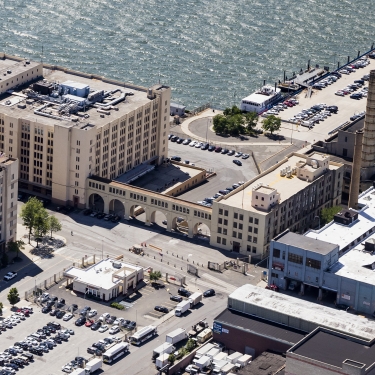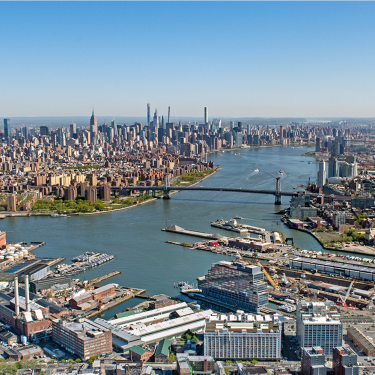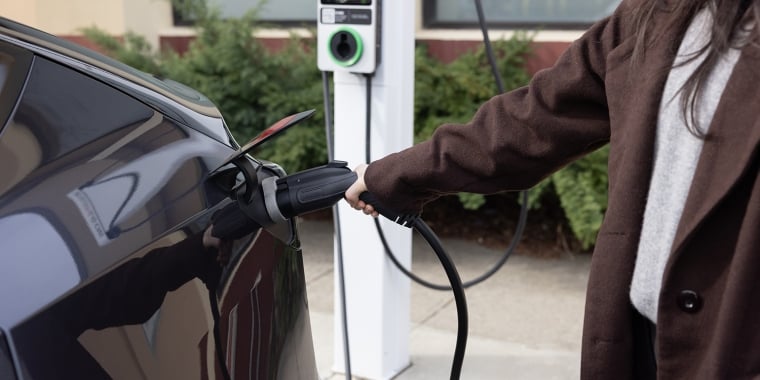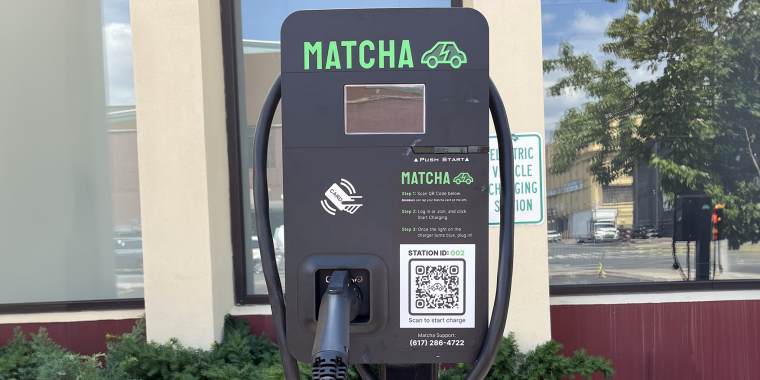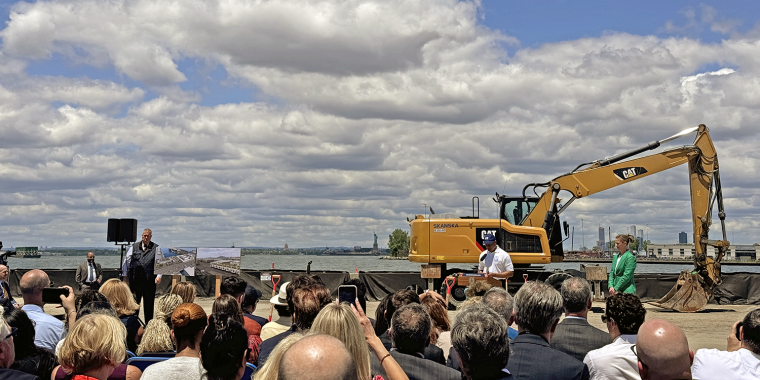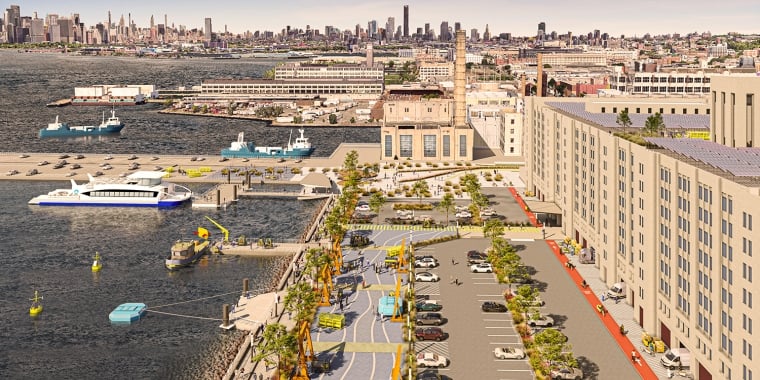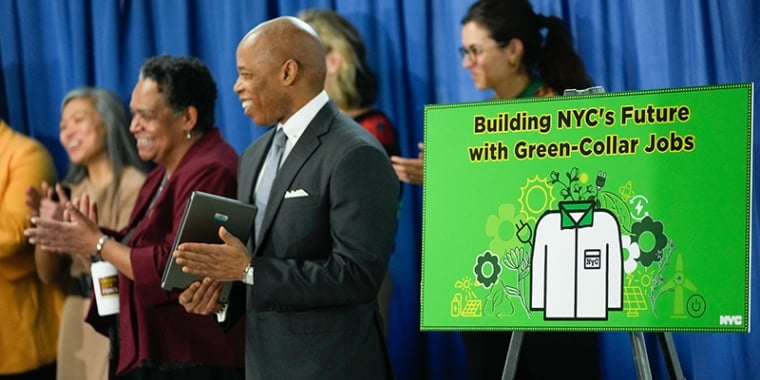Harbor Climate Collaborative
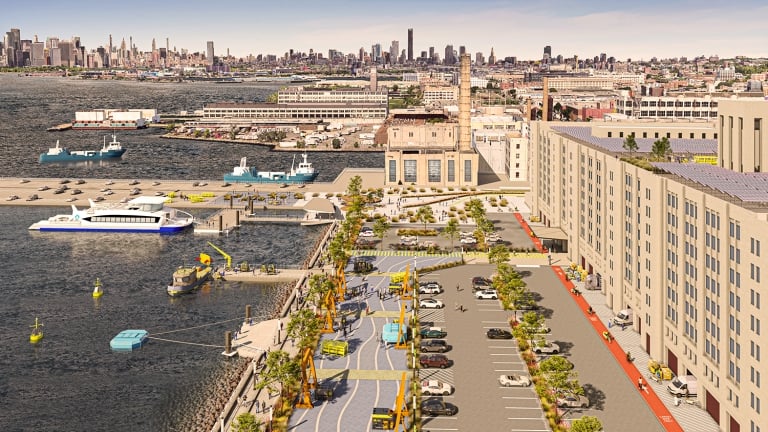
The Harbor Climate Collaborative is a joint initiative between three mission-aligned public entities with sites along the New York Harbor connected by NYC Ferry—the Trust for Governors Island (TGI), New York City Economic Development Corporation (NYCEDC) and Brooklyn Navy Yard Development Corporation (BNYDC)—to make NYC the global capital of climate innovation.
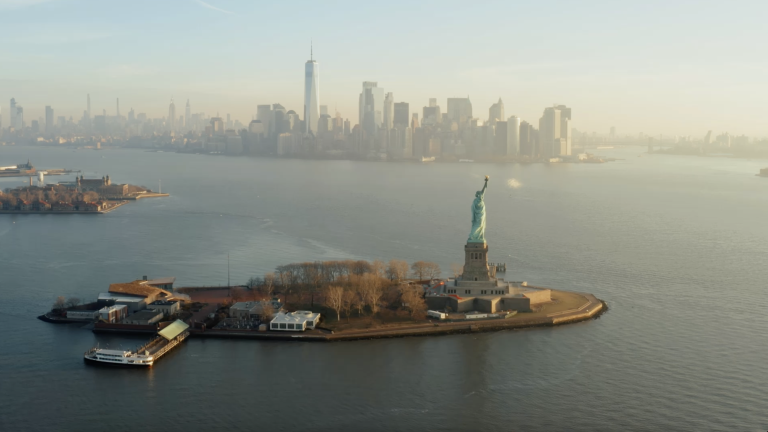
Get to know NYC's Harbor Climate Collaborative. View the full playlist to hear from the founders of Fram Energy and ChemFinity Technologies, two companies working on climate innovation within the Harbor Climate Collaborative.
Harbor Climate Collaborative Partners
To learn more about piloting, leasing space, or other important opportunities for collaboration, please visit each Harbor Climate Collaborative partner’s website for more information.
The Collaborative is a key commitment of the Green Economy Action Plan, NYC’s roadmap to invest in the jobs and sectors that will help the city combat climate change, and train and position New Yorkers—particularly those from environmentally-disadvantaged communities—to benefit from the nearly 400,000 projected “green-collar” jobs in New York City by 2040.
As the core of New York City’s burgeoning climate innovation ecosystem, the Collaborative will invest over $725 million to advance New York’s green economy in NYCEDC’s Sunset Park District, the Brooklyn Navy Yard, and on Governors Island. The investments will support climate innovators through piloting, tenanting, regulatory coordination, workforce development, knowledge/data sharing, fundraising, and facilitating access to City agencies.
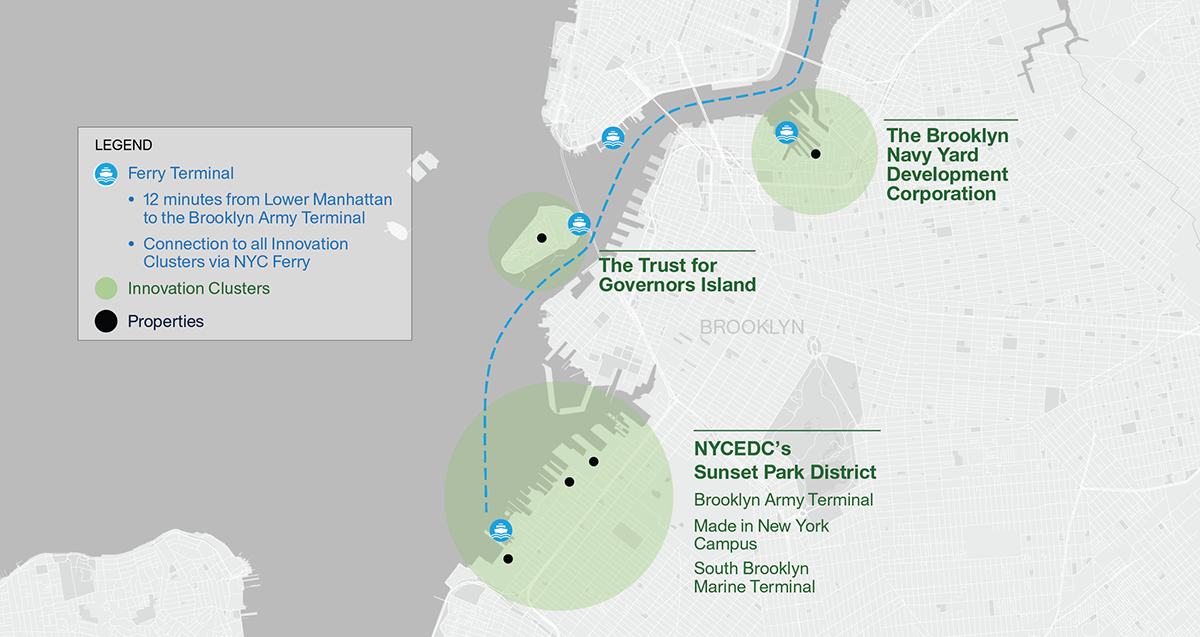
By unlocking six million square feet of space, the Harbor Climate Collaborative will support the creation of 5,000 permanent jobs, educate and train 2,100 students, and generate $55 billion of economic impact. The Collaborative will leverage each of the partners’ expertise in research and climate education, provide business support for emerging companies and solutions, prepare New Yorkers for good-paying jobs, and provide a home for new and existing businesses to scale in New York City’s growing green economy.
Harbor Climate Collaborative Pilot Companies
| Company name | Pilot Partner(s) | Description |
|---|---|---|
| itselectric | NYCEDC, TGI, BNY | itselectric is a Brooklyn-based startup developing curbside public EV charging solutions in partnership with property owners. |
| Conservation Labs | NYCEDC | Conservation Labs is a startup developing H2know, an affordable smart water monitor that uses AI to manage water consumption and detect leaks. |
| Enertiv | NYCEDC | Enertiv, a startup based in NYC, enables granular insights into electricity consumption that generates potential for monthly utility cost recovery. |
| ReVert | NYCEDC | ReVert designs, programs, and manufactures power adapters that combine AI and utility grid analytics to regulate power usage of appliances to save energy and reduce carbon emissions for enterprises. |
| Matcha | NYCEDC | Matcha is a turnkey electric vehicle charging solution for multi-tenant property owners, especially apartments, using the Brooklyn Army Terminal pilot to enter the New York City market. |
| Benchmark Labs | NYCEDC | Benchmark Labs is a startup that aims to demonstrate in-situ sensors to provide actionable and more accurate AI-based weather forecasts for offshore wind maintenance and operations. |
| Swobbee | NYCEDC | Swobbee, a German climate tech company focused on building multi-modal battery swapping stations, allows e-bike users to exchange a drained, UL-certified lithium iron phosphate bike battery for a fully charged one. |
| Swiftmile | NYCEDC | Swiftmile is a micromobility startup offering public charging infrastructure for small electric vehicles. |
| Popwheels | NYCEDC | Popwheels is a Brooklyn-based startup providing delivery workers with on-demand access to safe and convenient batteries through a battery-swapping network and charging cabinets. |
| Vycarb - Vycarb Prototype | TGI, BNY | Vycarb is a Brooklyn-based startup enabling decentralized carbon removal through real-time, autonomous, and direct measurement of CO2 in water. |
| Duro UAS | TGI | Duro UAS improves how environmental data is collected and shared through advanced, affordable, and easy-to-use water monitoring systems and data services. |
| Laero - Cycleau | TGI, BNY | Cycleau is a compact water reuse system that can be retrofitted below sinks, showers, and laundry units to treat greywater to drinking water. |
| RETI Center - BlueBlocks Gardens | TGI | RETI Center educates, trains and collaborates with local youth, industry experts, and community members to promote a balance of equity, ecology, and economy as we reimagine and adapt our waterfront communities to the new climate reality. |
| Circular Economy Manufacturing - Microfactory | TGI | Circular Economy Manufacturing uses a portable, renewably powered MicroFactory to locally produce well-designed products from sustainable material cycles for the circular economy. |
| Renovate Robotics | BNY | Renovate Robotics is the leading startup developing and deploying autonomous roofing robots to bring affordable solar to every home in America. |
| FOAM | BNY | FOAM provides the tools to enable a crowdsourced map and decentralized location services. |
| Pliant Energy Systems | BNY, NYCEDC | Pliant Energy Systems develops technologies in the fields of marine robotics, propulsion, electricity generation, and pumping. |
| Emissionless | BNY | Emissionless is decarbonizing ground freight transportation, utilizing software and a shared fleet of commercial EVs to provide faster, more efficient, zero-emissions logistics solutions. |
| Building Diagnostic Robotics | BNY | Building Diagnostic Robotics is a Brooklyn-based startup that uses AI and robotics equipped with thermal imaging and ground-penetrating radar to survey buildings and identify moisture anomalies, air leaks, and thermal bridging. |
Related News
